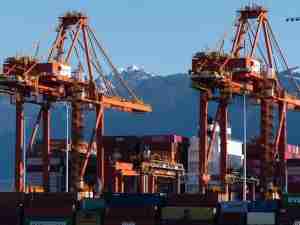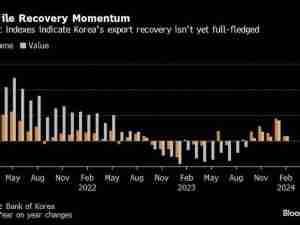Italy has blocked a shipment of the AstraZeneca Plc.’s coronavirus vaccine to Australia, using a recently introduced European Union regulation for the first time, in a move that risks triggering a global backlash.
The decision comes after Italian Prime Minister Mario Draghi called during an EU summit last week for a tougher approach against companies that don’t respect their delivery commitments. Officials in Brussels and in Rome confirmed the news of the export ban of 250,000 doses of the shots, which was first reported by the Financial Times.
The impact is likely to be largely symbolic given that the number of the vaccines blocked is relatively small compared to the company’s expected deliveries in the EU and elsewhere. But the move highlights Draghi’s intention to be tougher on pharmaceuticals that do not respect their commitments to the EU, and could encourage retaliatory protectionist measures by other governments.
In January, the European Commission introduced legislation which allows curbs on exports of coronavirus vaccines if drugmakers fail to meet delivery targets within the bloc. The rules came into force after AstraZeneca had informed the EU that it was unable to meet its commitments under an advance purchase agreement.
Damaging Protectionism
Under the so-called export transparency mechanism, countries have to inform the commission, the EU’s executive arm, of their decisions to block or allow exports of vaccines outside the bloc. The commission did not oppose Italy’s decision, an EU official said. The company declined to comment.
Italy is the first country so far to block the export of vaccines outside the EU, while over 170 requests have so far been authorized, according to a separate EU diplomat.
The decision could reignite concerns echoed by many including the World Health Organization that the EU is engaging in damaging protectionism, at a time when countries around the world race to immunize their populations amid growing concerns over fast-spreading coronavirus variants.
The EU has so far administered doses equivalent to just over 8% of its population, compared to 32.3% and 24.3% in the U.K. and the U.S. respectively, according to Bloomberg’s vaccine tracker. The bloc’s target is to inoculate at least 70% of the region’s adult population by the end of the summer.
The export controls may also prove to be a growing headache for drugmakers with so many manufacturing sites in the EU. Most companies at the forefront of the vaccine effort have production capacity in the bloc that is used to serve countries beyond it, or must be sent outside for completion before returning.
Johnson & Johnson, which is expected to receive approval for its vaccine from Europe’s medicines regulator next week, explicitly agreed in its contract with the EU that it would be sending vaccines to the U.S. to be put in vials and packaged before returning them.
Draghi asked leaders at the latest summit to adopt a more resolute and pragmatic approach to speed up vaccinations and told them the EU’s rollout has to move much faster. He wasn’t convinced by a slide shown to leaders indicating that available doses will be sufficient to vaccinate the bulk of the bloc’s population by the end of September. Draghi said deliveries in the second and third quarters couldn’t be predicted.
The newly installed Italian premier is working on an overhaul of Italy’s slow and uneven vaccination campaign, focusing on logistics and recruiting the military to help, as new variants accelerate the spread of the coronavirus pandemic.
He has signaled a strong break with the past by replacing two key officials who were in charge of countering the virus, and he wants to streamline and standardize inoculation procedures across the country, according to officials who asked not to be named discussing confidential preparations.
Draghi is banking on an improved vaccination campaign to help kick-start an economy which shrunk almost 9% in 2020, crippled by the pandemic and both regional and nationwide lockdowns.








